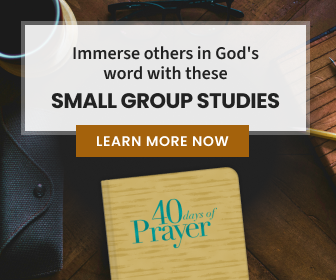Discipleship
4 Questions to Consider When Making Godly Decisions

As pastors, we’re often asked hard questions about how to make decisions. People will come to us and ask, “Can I be a good Christian and still do ___________?”
Sometimes the Bible is clear about how we should answer their questions. But many times, the issue is morally neutral—neither response is good nor bad.
So what do you do?
Here are four questions to consider when helping people make godly decisions.
Will the action be helpful?
Paul tells us that our freedom in Christ means everything is allowable, but he reminds us that not everything is beneficial.
He writes, “‘Everything is permissible for me,’ but not everything is helpful.’ Everything is permissible for me,’ but I will not be brought under the control of anything” (1 Corinthians 6:12 HCSB).
In that one verse, Paul gives us two tests to guide our decisions:
- Will it make me a better person? Many things are not necessarily wrong, but they’re just not necessary. Life is too short to waste on non-essentials, on things that don’t help you make the most of your life. Often the good is an enemy to the best.
- Does it tend to control me, or do I control it? Whatever controls your life is your god. And the Bible says, “Thou shalt have no other gods before me” (Exodus 20:3 KJV). If it’s addictive, don’t do it. If it tends to control your life, it won’t help you.
Does it bother your conscience?
If a morally neutral activity bothers your conscience, avoid it. Peter writes, “For you are free, yet you are God’s slaves, so don’t use your freedom as an excuse to do evil” (1 Peter 2:16 NLT).
When Adam sinned in the Garden of Eden, he immediately hid in the bushes. Adam wanted to cover up his sin, which is ridiculous. You can’t hide from God. The Bible says in Proverbs 28:13: “If you hide your sins, you will not succeed” (NCV).
Like Adam, we try to cover up our sin. We rationalize and make excuses. Peter reminds us not to use our freedom to hide our sins. Even if an action is perfectly okay, don’t do it if you have to explain yourself or use a cover up.
Will your action hurt someone?
If your action could hurt someone, that’s a legitimate reason to limit your freedom. Paul writes about this in 1 Corinthians 8, where he describes a debate about Christians eating meat that had been offered to idols.
In pagan temples at the time, they would sacrifice animals, and then sell the meat at a discounted rate because nobody wanted to buy it.
Some Christians thought it was okay. After all, they didn’t believe in the gods the meat had been sacrificed to anyway. But others thought it would influence new believers who were weak and cause them to fall back into their old lifestyles.
Paul calls this a problem: “Be careful, however, that the exercise of your rights does not become a stumbling block to the weak” (1 Corinthians 8:8 NIV).
This principle is often misunderstood. Often, it’s used as an excuse for legalism. But you need to understand what a stumbling block is. It doesn’t mean you shouldn’t do it if someone is offended by your action. Jesus constantly offended people.
A stumbling block is any action or word that will cause other Christians to fall back into a former lifestyle. It doesn’t mean they disagree or don’t approve of you. It means your action influences a weaker Christian toward sin.
Is it a loving action?
Love your neighbor as yourself. Jesus didn’t set you free so you can be successful. The only way you can truly be successful is by helping others. The more you act to benefit others, the more you are blessed in return.
Paul writes to the Galatians, “For you have been called to live in freedom, my brothers and sisters. But don’t use your freedom to satisfy your sinful nature. Instead, use your freedom to serve one another in love” (Galatians 5:13 NLT).
Our freedom should never lead to selfishness. Love should be the regulator of our liberty when we’re unclear about what to do next.
Think of a giant river flowing down. There are two banks of the river. On one bank is legalism with a list of rules you must keep to get God’s approval. On the other bank is license that urges you to do what you want regardless of how it impacts others. Both of those extremes are wrong. In the middle of those two banks is the river marked liberty.
Legalism says, “I will do whatever’s demanded of me. I will keep a checklist of do’s and don’ts.”
License says, “I’ll do as I please. Whatever I want to do, I’ll do it.”
Liberty says, “I’ll do the loving thing in every situation when it’s not clear from Scripture what to do.”
That’s real freedom.















